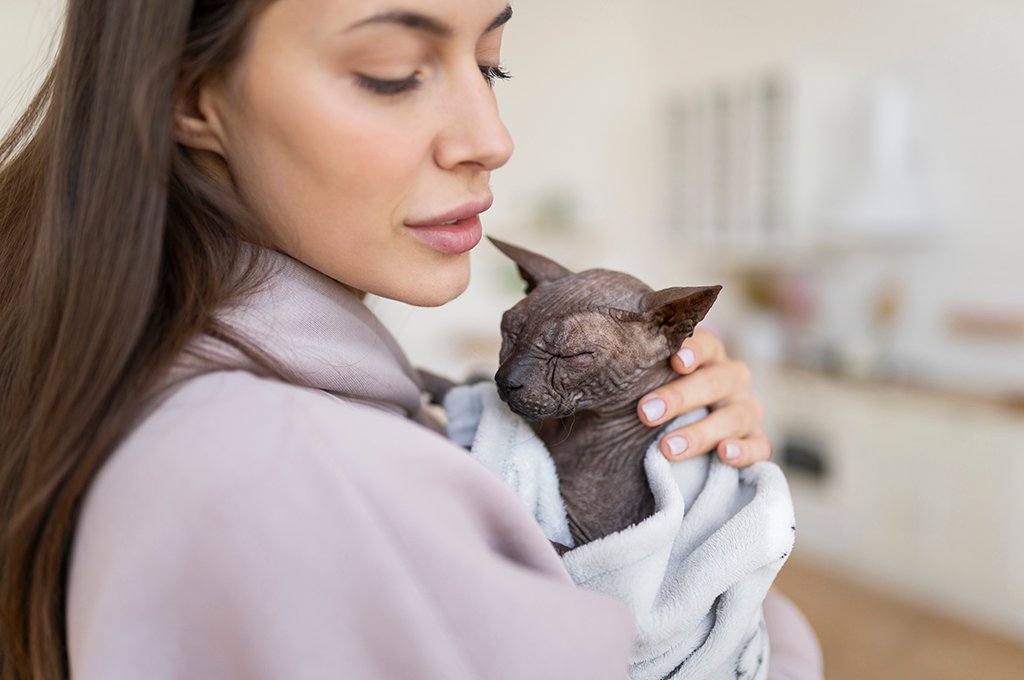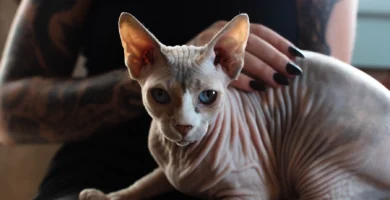Get to know the best breeds of hypoallergenic cats list


List of hypoallergenic cats:
Finding the perfect pet when you have allergies can be a challenging task. However, for cat lovers who struggle with allergies, hypoallergenic cats provide a wonderful alternative. In this article, we’ll explore what hypoallergenic cats are, go over a comprehensive list of hypoallergenic cats, and discuss why some breeds, like the Siberian, are a good fit for allergic families.
What Does It Mean for a Cat to Be Hypoallergenic?
Hypoallergenic cats are not completely free of allergens, but they are known to produce fewer allergens compared to non-hypoallergenic cats. The protein Fel d 1, found in cats’ saliva, skin oils, and dander, is what triggers allergic reactions. Some cats, particularly those categorized as hypoallergenic, produce less of this protein, making it easier for people with allergies to live with them.
From my own experience, living with a Siberian cat named Storm has been nothing short of miraculous. Despite having severe asthma and eczema as a child, I’ve been able to live comfortably with her. It’s a huge relief knowing I can finally enjoy the company of a pet without worsening my symptoms. While no cat is 100% allergy-proof, breeds like the Siberian produce fewer allergens, which might make all the difference.
Top 10 Hypoallergenic Cat Breeds
Here’s a list of hypoallergenic cats that are known to produce lower levels of allergens:
- Siberian – A popular choice for people with allergies, this breed has long fur but is known to produce lower levels of Fel d 1. My own experience with Storm confirms that the breed is indeed a great choice for allergic families.
- Balinese – Sometimes referred to as the «long-haired Siamese,» the Balinese is a beautiful, elegant breed that doesn’t produce as many allergens as other long-haired cats.
- Sphynx – Famous for being hairless, the Sphynx is an excellent option for those looking for hypoallergenic cats that don’t shed.
- Cornish Rex – With its short, wavy coat, the Cornish Rex sheds very little, making it another good hypoallergenic option.
- Devon Rex – Similar to the Cornish Rex, the Devon Rex has a soft, short coat and produces fewer allergens.
- Oriental Shorthair – Sleek and slender, this breed is low-shedding and can be a good fit for allergy sufferers.
- Javanese – Another long-haired breed that surprisingly produces less Fel d 1.
- Russian Blue – Known for their dense coat, Russian Blues are believed to produce lower allergen levels, and they are often considered one of the best hypoallergenic cats.
- Bengal – These active, spotted cats have short fur and are a good choice for people with mild allergies.
- Oriental Shorthair – Often praised for their sleek, short coats, they shed minimally and produce fewer allergens.
Posts and details of most hypoallergenic cats

Cornish Rex Cats and its Fascinating World

Russian Blue Cats

Sphynx Cats

Bengal Cats: The Unique, Energetic Feline Companion
Why the Siberian Cat is a Great Choice for Allergy Sufferers
The Siberian cat, with its luxurious fur and strong build, might not seem like the obvious choice for someone with allergies. However, Siberians produce lower amounts of Fel d 1, making them one of the most hypoallergenic cats. In fact, this breed was my solution after years of wanting a cat but fearing the consequences for my health. After careful research, I found breeders, visited their catteries, and spent time with both kittens and adult cats before committing to one. Despite my allergies, I did not have any reactions, which was incredible.
How to Minimize Allergens at Home with a Cat
Even with the best hypoallergenic cats, it’s crucial to take steps to reduce allergens in your home. Here are some tips:
- Regular grooming: Brush your cat often to remove loose hair and dander.
- Bathe your cat: If your cat tolerates it, bathing can help reduce allergens on their skin and fur.
- Vacuum frequently: Keep your home free of dander by using a vacuum with a HEPA filter.
- Air purifiers: Consider getting an air purifier to help remove allergens from the air.
- Wash bedding and furniture covers regularly: This reduces the buildup of allergens on fabrics.
In my own home, we follow these steps religiously. Storm, our Siberian cat, is brushed every week, and we’ve invested in a high-quality air purifier. These steps have significantly improved our overall comfort and help keep allergens under control.
My Experience Owning a Hypoallergenic Cat
As I mentioned earlier, adopting Storm, my Siberian cat, has been an absolute joy. Living with allergies my entire life made me hesitant at first, but after careful research and consulting with my doctor, I decided to give it a try. I visited several breeders before finding the right cat for me, and I recommend anyone considering hypoallergenic cats for sale do the same.
It’s important to understand that hypoallergenic cats can still provoke some reactions, so testing your tolerance is key. In my case, after interacting with multiple Siberians, I was thrilled to discover that I could bring one home without worsening my allergies. I’m even planning on adopting another soon!
You can see a video opinion here.
Precautions When Adopting a Hypoallergenic Cat
Before committing to any breed, especially hypoallergenic cats for sale, it’s essential to:
- Visit breeders: Spend time with both kittens and adult cats to ensure that you won’t have an allergic reaction.
- Talk to your doctor: Discuss your plans with a healthcare professional and ensure that your medication regimen is prepared in case of any reactions.
- Do your research: Learn about different types of hypoallergenic cats and choose a breed that suits your lifestyle and health needs.
Conclusion: Is a Hypoallergenic Cat Right for You?
If you’ve always dreamed of owning a cat but suffer from allergies, adopting a hypoallergenic breed might be the solution you’ve been looking for. While no cat is completely free from allergens, there are hypoallergenic cats that don’t shed as much or produce fewer allergens, making life with them much more manageable.
Based on my own experience with Storm, I highly recommend doing thorough research and visiting breeders before making a decision. With the right approach and care, you can enjoy the companionship of a loving cat without the sneezing and discomfort.
Frequency Questions about hypoallergenic cats
The Siberian cat is often considered one of the most hypoallergenic cats due to its lower production of the Fel d 1 protein, which is responsible for triggering allergic reactions.
The best cats for someone with allergies include breeds like the Siberian, Balinese, and Sphynx. These cats tend to produce fewer allergens or shed less, making them more suitable for allergy sufferers.
Breeds like the Siberian, Russian Blue, and Balinese are known to produce lower levels of the Fel d 1 protein, which is the primary allergen found in cats.
No, no cat can be 100% hypoallergenic. All cats produce some level of allergens, but certain breeds produce significantly less, making them a better choice for people with allergies.
